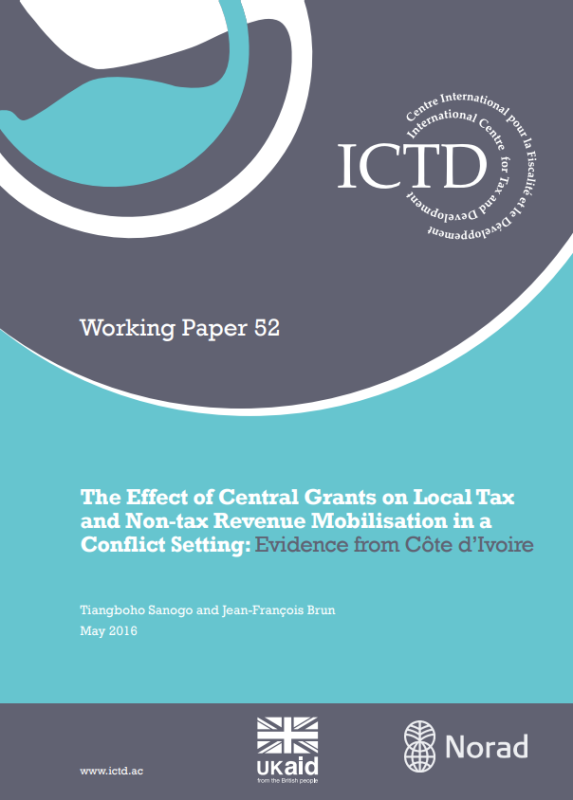Thematic Areas
Côte d’Ivoire’s tax system comprises two property taxes: the tax on property income (Impôt sur le revenue foncier, IRF) and the tax on property wealth (Impôt sur le patrimoine foncier, IPF) for built and unbuilt properties. While the IRF fully accrues to the state, IPF revenue is partly allocated to municipalities (about 40 percent) and entities managing waste and sanitation. These taxes are governed by the General Tax Code (Code Général des Impôts, CGI) and the Fiscal Procedure Handbook (Livre des Procédures Fiscales, LPF).
Property taxation in Côte d’Ivoire is administered by the central government, specifically through the General Directorate of Taxation (Direction Générale des Impôts, DGI). A key department within the DGI, the Cadastre (DCAD) office, alongside property tax units in regional offices, oversees much of the property tax cycle, including identification, registration, billing, collection, and enforcement. The DCAD is vital for creating cadastral infrastructure and maps and it works land titling and parcel demarcation with the Directorate of Estate, Land Conservation, Registration and Stamps, and the Ministry of Construction, among others. The DCAD also maintains a database of property owner information. While municipalities mainly provide support in distributing tax notices, the collected property tax revenue is later shared with municipalities and other local entities based on a fiscal equalization formula.
Despite its high potential, Côte d’Ivoire’s property tax performance is still weak. As a result, the government has initiated various reforms, with a focus on property identification. A key initiative is the Integrated Urban Land Management System (SIGFU), launched by the Ministry of Construction in collaboration with the DGI to digitalize and accelerate property registration. The DGI established the Property Tax Performance Optimization Committee (Comité d’optimisation du rendement de l’impôt foncier, CORIF), aiming to enhance cadastral databases through private sector partnerships by cross-referencing property owner data.
Learn more:
- Tayoh (2017) : “Chapter 8: Côte d’Ivoire” in Property Tax in Africa https://www.lincolninst.edu/publications/books/property-tax-in-africa
- IMF (2019) : Côte d’Ivoire Country Report https://www.elibrary.imf.org/view/journals/002/2019/366/002.2019.issue-366-en.xml
- Ramarozatovo et. al (2021): Côte d’Ivoire, Rapport d’Evaluation de la Performance https://budget.gouv.ci/doc/loi/RAPPORT TADAT COTE D_IVOIRE DEC 2021.
Featured Projects
Research & Publications


Related Media


Photo credit to Adobe Stock/Mltz


